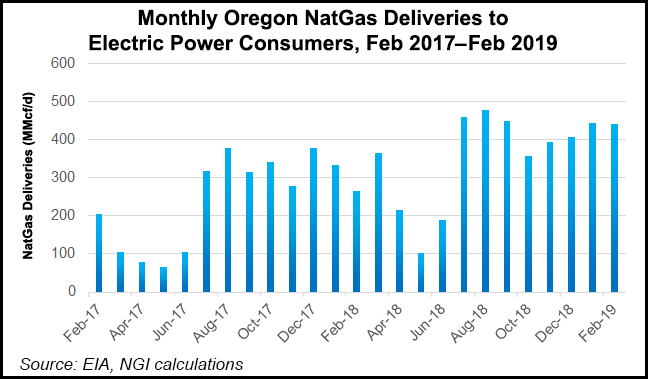Regulatory | NGI All News Access | NGI The Weekly Gas Market Report
Oregon Cap-and-Trade Proposal Spurs Debate Among Gas, Power Interests
Oregon lawmakers have sparked tensions between the retail natural gas and electricity sectors over a proposal to launch a cap-and-trade program, House Bill (HB) 2020, which currently favors power over gas customers.

HB 2020 last week passed out of the Joint Committee on Carbon Reduction and was referred to the Joint Committee on Ways and Means, which may be its last stop before each house in the state legislature consider it for final passage.
Proponents that include Portland General Electric (PGE) view cap-and-trade as working with the state’s overall climate change response initiative in a way that’s no different than transitioning to renewable power and eliminating coal-fired generation. The state’s Portland-based gas utility, NW Natural, wants to avoid current estimates of an 11% spike in retail gas utility bills.
“We’re working to mitigate the impacts of HB 2020 on gas customers, relative to electricity,” said Northwest Gas Association’s Dan Kirschner, executive director. He said the most recent amendments have modified the measure but not enough to appease the gas industry.
“We are working toward similar treatment between gas and electricity customers,” Kirschner said. “While the amendments move the needle in the right direction, the fundamental disparity in treatment remains.”
He said, “The bill is not a slam dunk, but it is a key priority for the governor and the majority leadership of both chambers.”
The original proposal did not mirror other cap-trade programs around North America, including the California program that was extended to 2030 last year. The program is now designated to be run by the Oregon Public Utility Commission and treat gas and electricity differently.
Under the amended HB 2020, electricity customers would have 100% free allowances for 10 years, while the gas customers get a maximum of 75% allowances (all low-income and up to 60% of other customers) starting immediately and declining with the cap (except for low-income). Nevertheless, NW Natural has calculated that under the bill, by 2040 its residential customers would pay an extra $567 annually in natural gas charges, a 53% increase. Industrial and commercial customers would likely see even steeper increases.
© 2024 Natural Gas Intelligence. All rights reserved.
ISSN © 1532-1231 | ISSN © 2577-9877 | ISSN © 1532-1266 |
